Affiliate links on Android Authority may earn us a commission. Learn more.
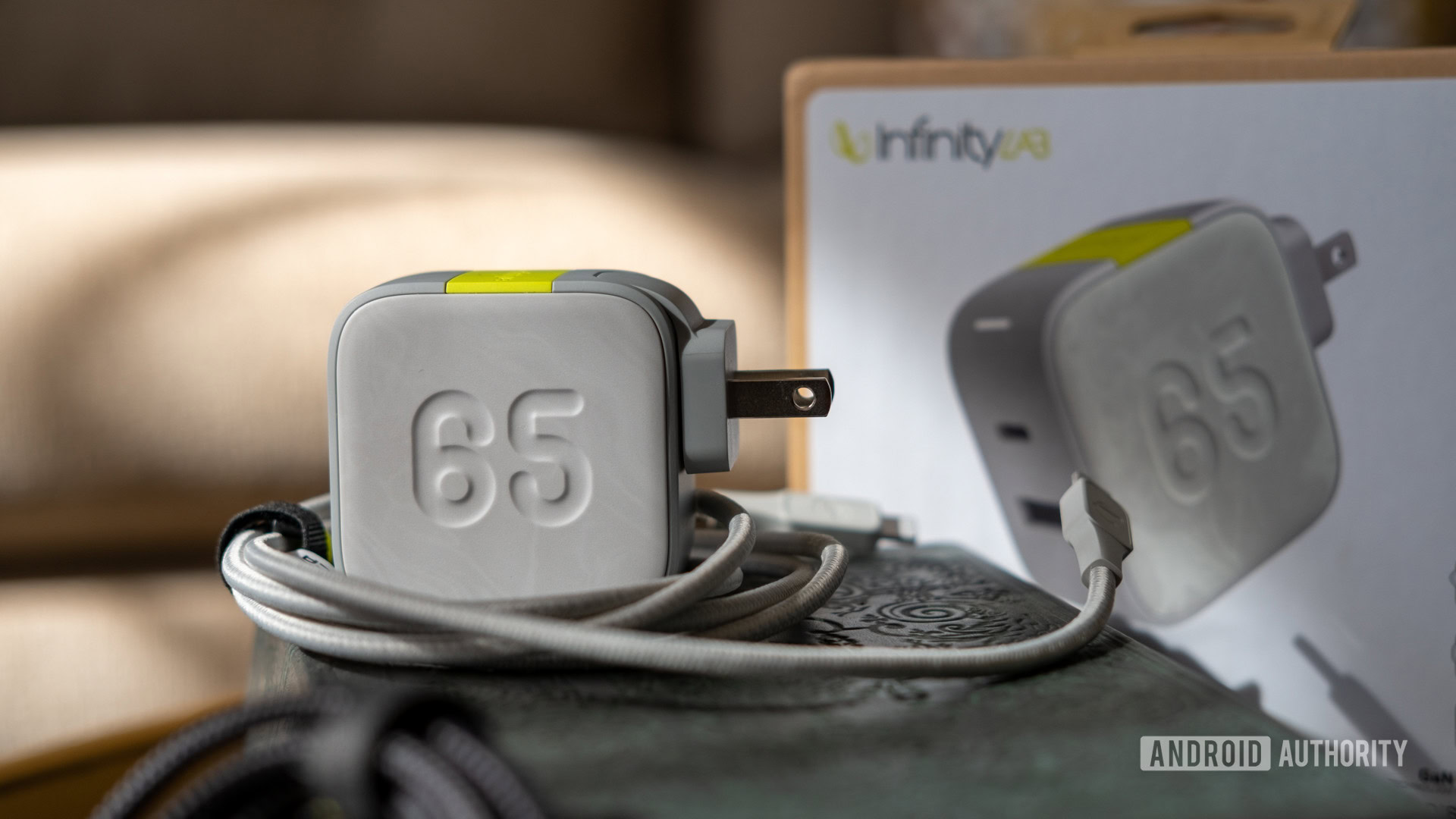


InfinityLab InstantCharger 65W
MSRP:
What we like
What we don't like

InfinityLab InstantCharger 65W
Harman is all-in on making recycled plastic the future of charging. It’s launched power banks under the InfinityLab umbrella, and now it’s time for wall chargers to get in on the action. This 65W option comes with almost everything you can ask for, including USB Power Delivery 3.0 and GaN technology. Find out if the future of charging is bright in our InfinityLab InstantCharger 65W review.
See also: The best wall chargers you can buy
What you need to know about the InfinityLab InstantCharger
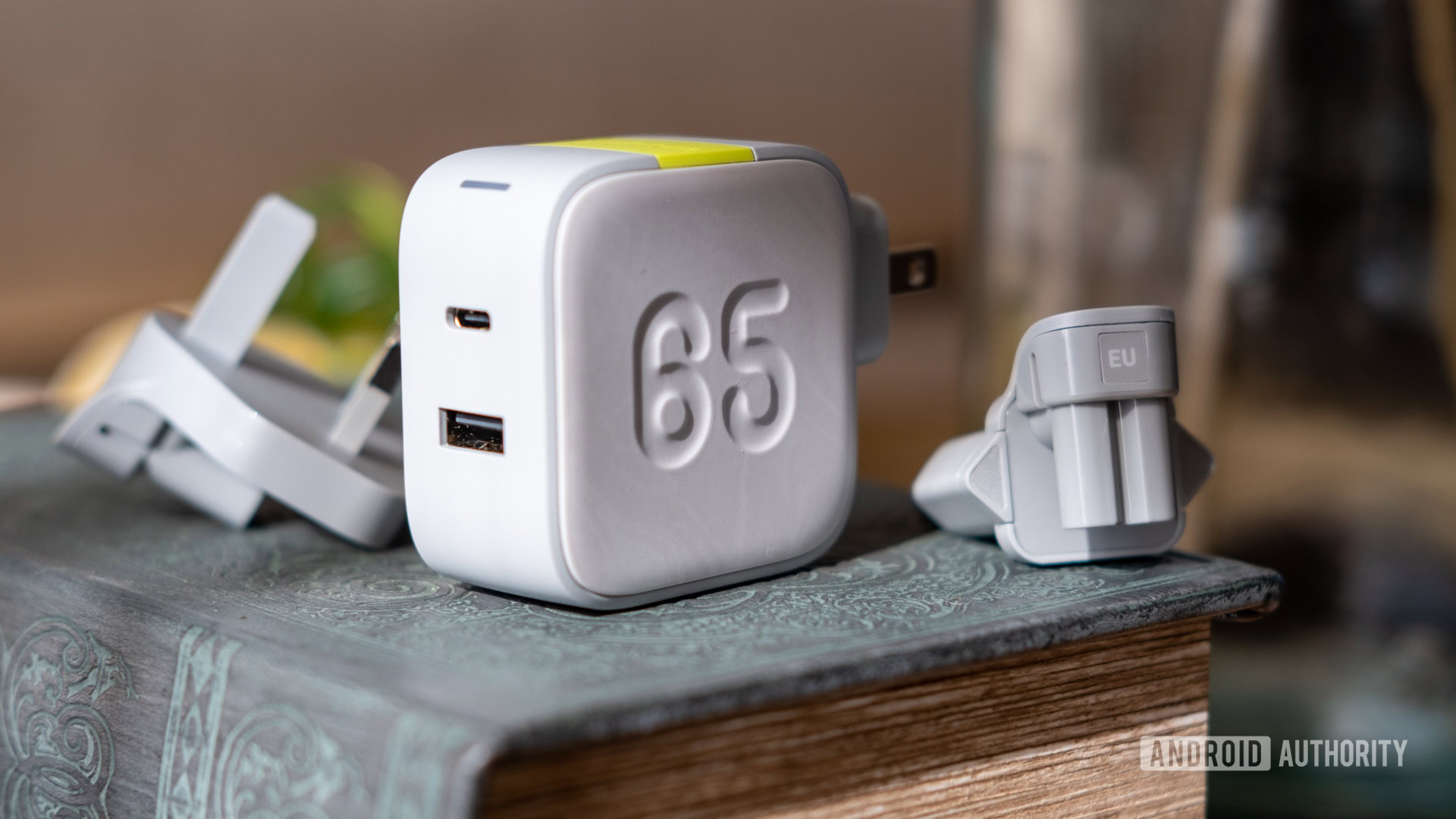
- InfinityLab InstantCharger (65W): $49 / €49
InfinityLab is big on instant charging — its power banks fall into the InstantGo family, and now it offers InstantCharger wall options. We’ve had the chance to use the 65W option, though you can also grab a 30W charger with two ports or a 20W option with one. As you can see above, the 65W InstantCharger packs a USB-C port — rated for the full 65W — and a USB-A option for up to 15W charging.
As for charging standards, the InstantCharger 65W supports USB Power Delivery 3.0 but not PD PPS. If you have an older device, you can tap into Quick Charge 2.0 and 3.0 as well as Apple’s 2.4A charging. The wall charger also employs gallium nitride, or GaN, technology to help keep the temperature down while charging.
At just 107g and 65W, the InstantCharger packs the size and speed for a weekend on the go.
It may set you back a cool $49, but the InstantCharger packs three international plug options and a handy drawstring bag to keep everything together. It’s billed as a solid travel companion, measuring just 56 x 56 x 28mm and weighing only 107g without your plug of choice.
Of course, the driving force behind InfinityLab’s selection of charging accessories is sustainability. The InstantCharger is housed in 90% recycled plastic, and it ships in FSC-certified packaging. That packaging contains the international ports and pouch that we mentioned, along with some basic paperwork that’s printed with organic soy ink.
See also: Here are the best travel gadgets to get
What’s good?
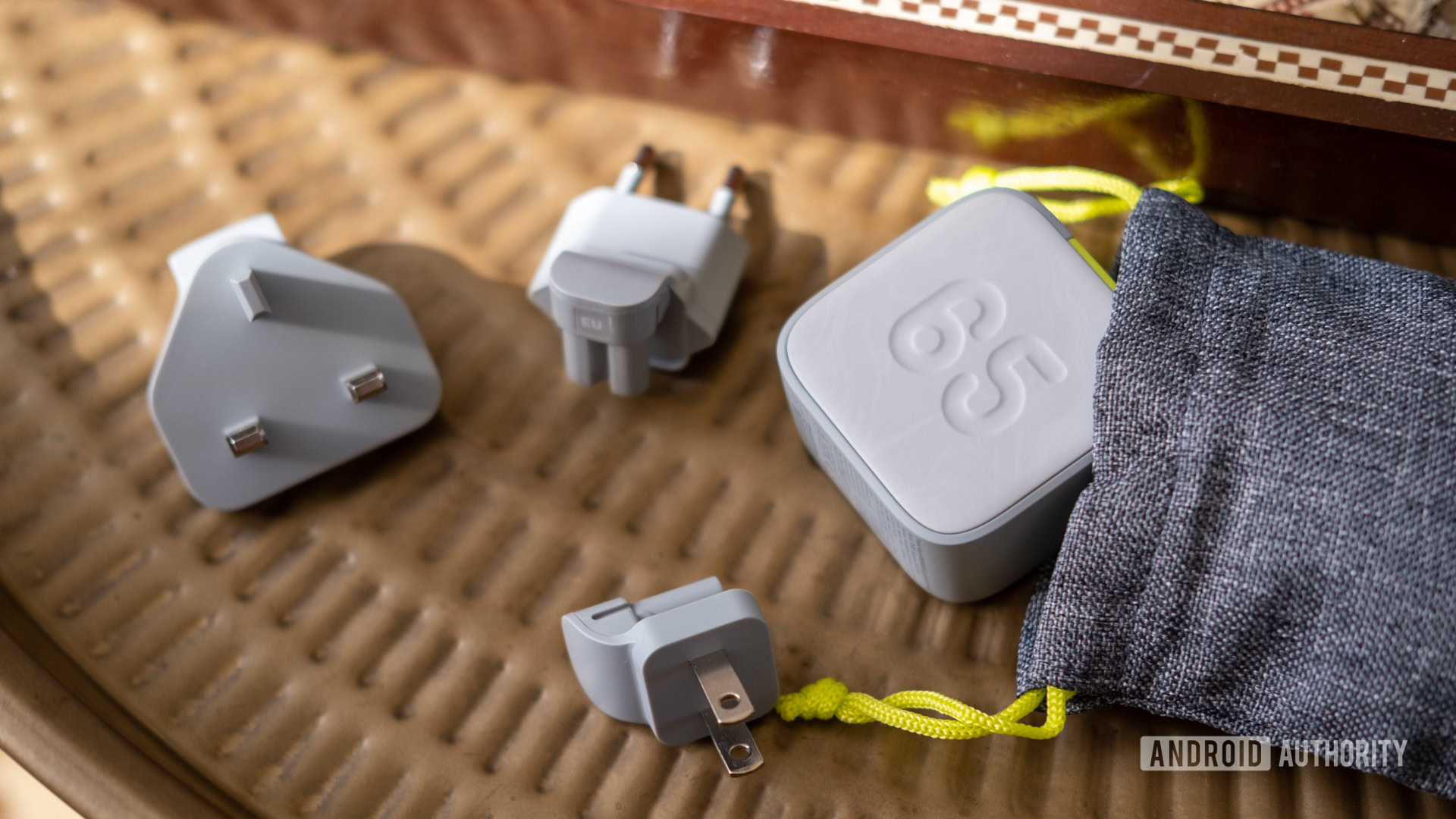
InfinityLab earns big points from me for its use of recycled plastic. Most people have wall chargers sitting around that they never use, and the InstantCharger is a powerful alternative without using too much new material. It’s impressive to see 90% recycled plastic when competing chargers from Nimble top out at around 72% recycled material.
The 65W InstantCharger has generally become my go-to option over the past month or so thanks to its combination of size and speed. At just 107g, it’s easy enough to toss in a pocket with your port of choice and forget about it. If you’re planning to be away for longer, you can always pop the charger, the port, and your cable of choice in InfinityLab’s drawstring pouch.
I’ve also found that the InstantCharger has no problems delivering solid USB-C charging speeds. My Surface Laptop 3 saw sustained 48W charging, which isn’t bad considering it’s not meant to use USB-C for its primary charge. I also topped out with full 18W speeds on my Pixel 5 and slightly slower 15W Power Delivery 3.0 speeds on my Samsung Galaxy S21.
What’s not so good?
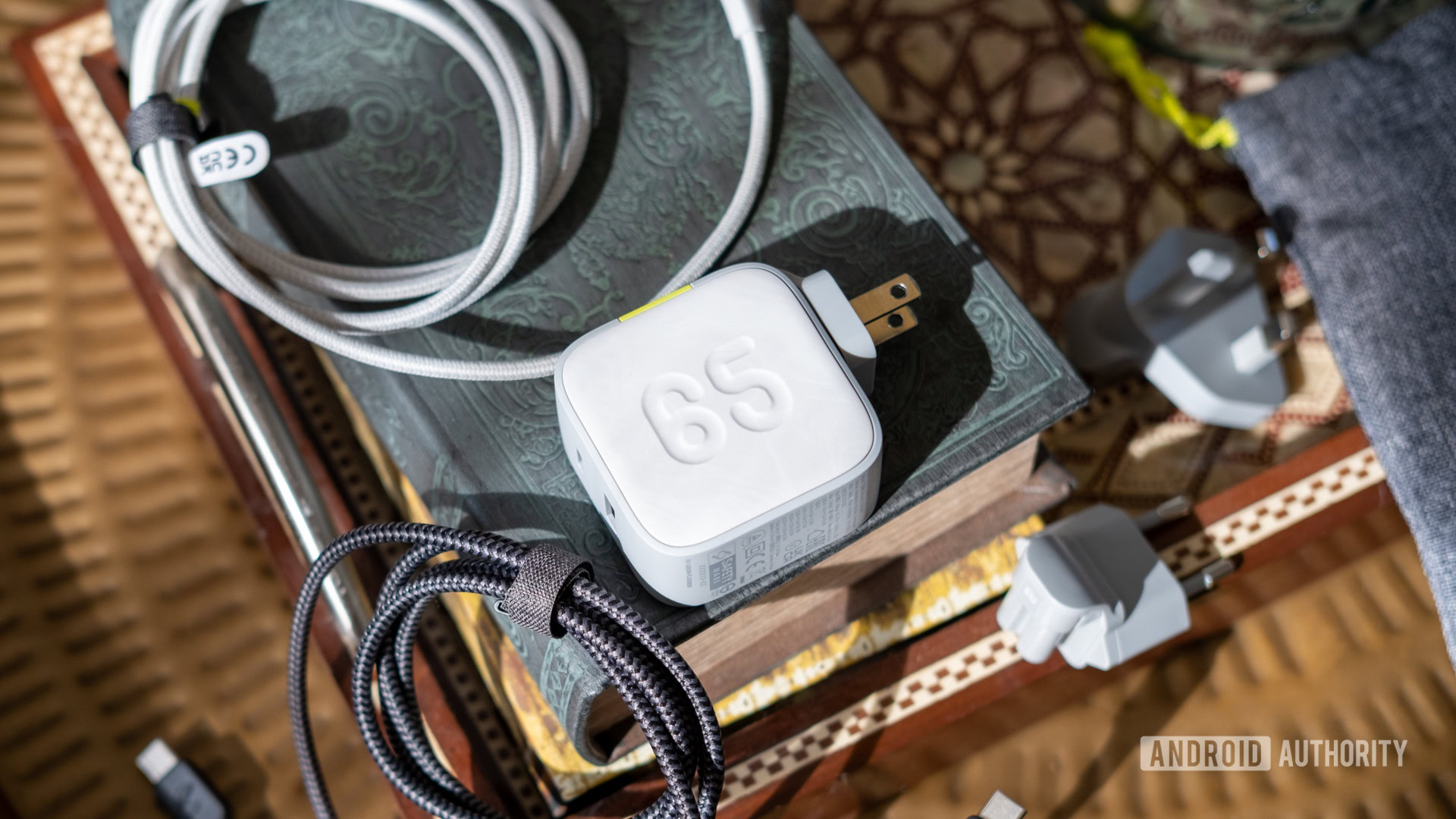
While the InstantCharger offers solid speeds in most cases, it would have been nice to see USB Power Delivery PPS support. It’s not on every wall charger quite yet, but it’s a must if you want to charge newer Samsung devices at full speeds. Although the Galaxy S21 series is capable of up to 25W charging, it’s only possible with USB PD PPS, otherwise, you top out at the 15W speeds I achieved above.
The lack of USB PD PPS holds back Samsung devices, while Pixels and iPhones charge at full speed.
I also found that the USB-A port rarely lived up to its maximum 15W speeds. It typically delivered closer to 6W with the Quick Charge 2.0 standard when charging my Galaxy S21. That said, I managed closer to 11W speeds from the same port while charging an iPhone 12 Pro, so it may have been an issue with my cable.
If you’re charging multiple devices at once, you’re probably better off with two phones instead of a phone and a laptop. The wall charger splits the 65W, so a laptop plugged into the USB-C port will greatly limit what you can push through the USB-A option.
My last complaint with the InstantCharger is the lack of folding prongs for charging. I have only needed the US plug so far, and it would be nice to simply fold the prongs away for easy travel. Right now, your options are either remove the adapter altogether or walk around with it ready to get caught on something.
Learn more: Here are the best Samsung Galaxy chargers
InfinityLab InstantCharger testing results
| InfinityLab InstantCharger Power Test | Samsung Galaxy S21 | Apple iPhone 12 Pro | Microsoft Surface Laptop 3 |
|---|---|---|---|
| InfinityLab InstantCharger Power Test USB-C port 1 | Samsung Galaxy S21 9.06V 1.59A 14.4W Standard: USB PD 3.0 | Apple iPhone 12 Pro 8.85V 2.32A 20.5W Standard: USB PD 3.0 | Microsoft Surface Laptop 3 19.76V 2.47A 48.81W Standard: USB PD 3.0 |
| InfinityLab InstantCharger Power Test USB-A port 2 | Samsung Galaxy S21 4.97V 1.18A 5.9W Standard: Quick Charge 2 | Apple iPhone 12 Pro 4.96V 2.36A 11.7W Standard: APPLE | Microsoft Surface Laptop 3 N/A |
InfinityLab 65W InstantCharger review: Should I buy it?
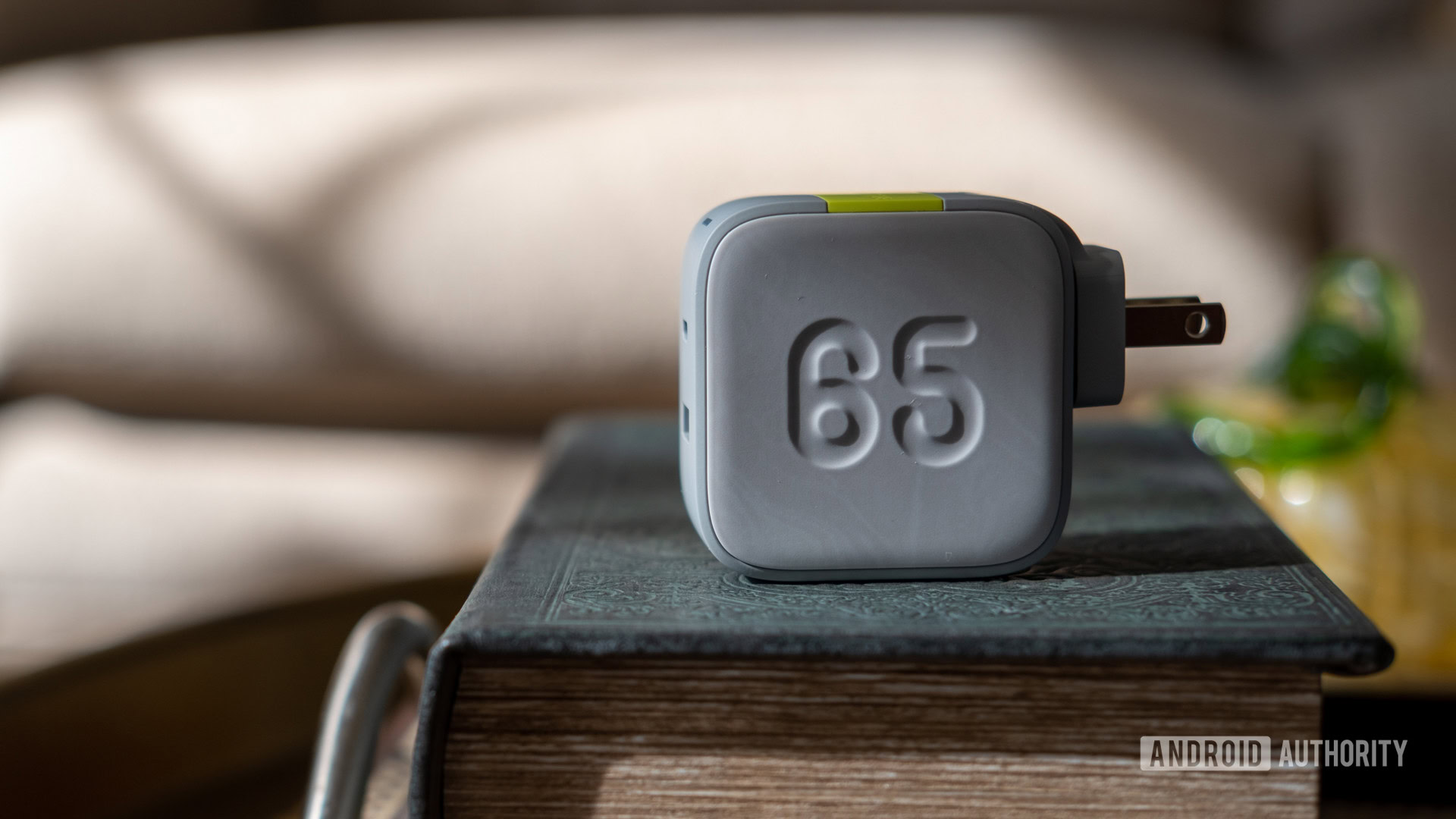
Harman might be on to something with its InfinityLab lineup. The InstantCharger is a good all-around performer that’s kind to the environment. It’s a bit more expensive than most USB Power Delivery 3.0 wall chargers, but recycling plastic can be a costly process. Overall, the 65W speeds should be just fine for most users, and the featherlight weight means you can always keep it in a pocket or a backpack.
See also: The best multi-port wall chargers
If you want an eco-friendly charger from outside the Harman umbrella, Nimble is the obvious choice. Its Wally charger ($59) adds an extra USB-C port to the mix and still tops out at 65W speeds. However, it uses slightly less recycled plastic at 72.5%. Those of you with Samsung devices looking for the best speeds should consider Anker’s PowerPort III 25W ($19), which packs USB PD PPS as well as Quick Charge 4 support.
